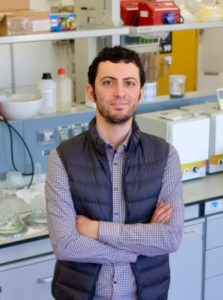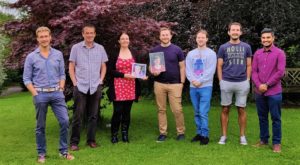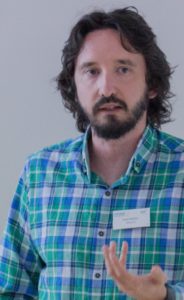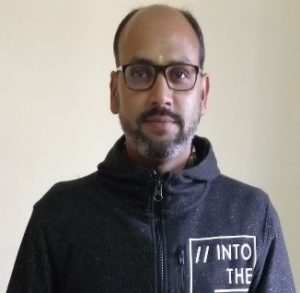
Dr. Gianvito Vilé is a Tenure-Track Assistant Professor in Chemical Engineering at Politecnico di Milano, where he heads the Nanocatalysis Lab. He studied Chemical Engineering in Italy and obtained a PhD in Chemical Engineering at ETH Zurich with a thesis on the design of catalytic materials and flow reactors for selective hydrogenation. Before joining Politecnico di Milano, he was a Lab Head at Idorsia Pharmaceuticals, where he applied enabling technologies (flow chemistry, high-throughput synthesis, process intensification and single-atom catalysis) to reactions encountered in drug discovery. His group in Milano is designing novel structured catalysts and reactor concepts for the synthesis of pharmaceuticals and for the circular recycling of waste contaminants.
Read his Emerging Investigator article “Surface engineering of a Cu-based heterogeneous catalyst for efficient azide–alkyne click cycloaddition” and read more about his in the interview below:
How do you feel about Reaction Chemistry & Engineering as a place to publish?
RCE is the reference journal to publish research contributions where fundamental molecular chemistry meets chemical engineering and technology. No other journal is so engaged in covering new methodologies, molecular-level understanding of reaction mechanisms, and practical solutions for process development. This is the reason why I regularly choose RCE as the optimal place for my contributions, and I am also happy to act as a regular Reviewer for this journal, contributing to its development.
What aspect of your work are you most excited about at the moment and what do you find most challenging about your research?
I am currently working at the interface of single-atom catalysis and flow chemistry. Single-atom catalysis is a rapidly-developing field embracing both homogeneous and heterogeneous catalysis. Over the past few years, I have been fortunate to publish key developments on single-atom catalyst design for hydrogenations and C-C couplings. I am now trying to understand the structure and function of these new materials. I am also exploring unconventional catalytic applications, integrating those catalysts in continuous-flow reactors for sustainable technologies.
The most exciting part of my work is going to the lab every day and remaining at the forefront of science with new (surprising) results. I am also excited about working together with my highly-motivated doctoral and postdoctoral students. The challenging part is encouraging and inspiring these junior researchers to develop their vision for the future. I hope to be a good mentor for them.
In your opinion, what are the most important questions to be asked/answered in this field of research?
Transforming today’s pharmaceutical and chemical processes, and making them more sustainable without affecting productivity levels, is one of the biggest challenges mankind has ever faced. It means, transforming the way we do almost everything.
Can you share one piece of career-related advice or wisdom with other early career scientists?
An important piece of career-related advice for early-career scientists is “never set up artificial divisions in science and do not be afraid of taking new paths”. To solve today’s problems, we need an interdisciplinary approach. The best way to develop this is through interactions with engineers, chemists, biologists, material scientists, and industrial specialists. In academia we tend to disregard industrial research, although this has also contributed in the past to important breakthroughs. Young scientists may also think that an unconventional career path in science may be detrimental for future development. I worked in research settings in academia and industry. In both places, I had fantastic (and science-driven) mentors. Both experiences were very transformative for me















